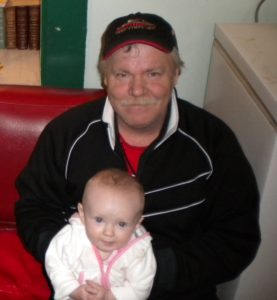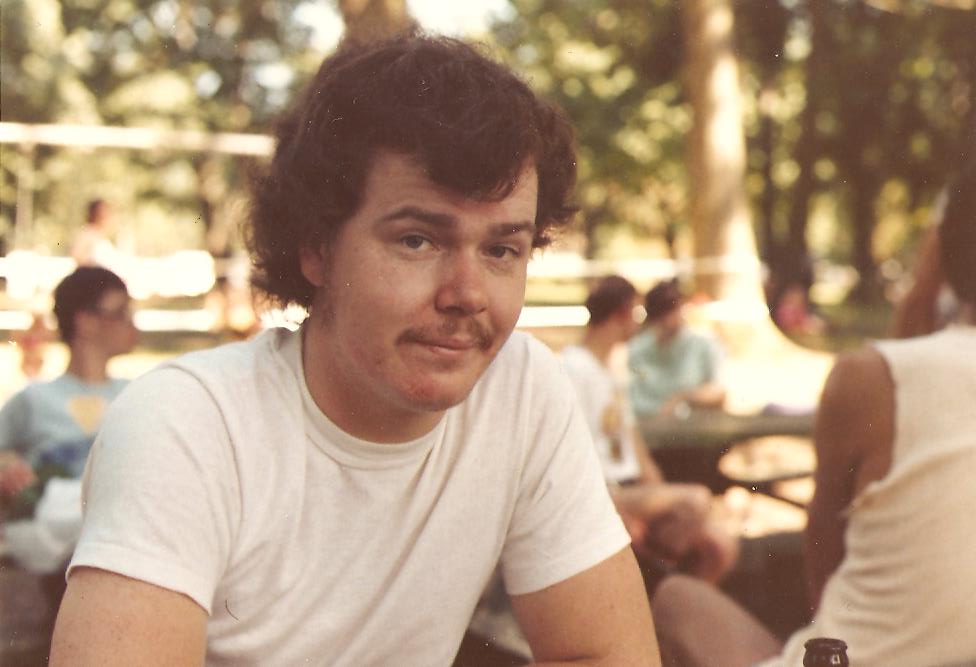It’s not your typical family outing, but then, mine is not a typical family.
Last month, I took my 14-monthold daughter to an emergency shelter in the Downtown Eastside. Having endured an hour long stifling car ride into the bustling city, she was dying to be put down so she could crawl around and play.
But I held her tightly to my chest as we spotted a fat cockroach scurrying by my feet – Molly’s tiny index finger pointing excitedly at the offending creature.
I held her even closer when a resident of the shelter – a thirty-something man with a sunken face, glazed eyes and unkept hair – tried to brush her rosy cheek with the back of his nicotine stained hand, his long nails encrusted with filth. He was being friendly, just a little too friendly.
I was ready to take Molly, run out the front door and never look back. Unfortunately, leaving wasn’t an option. Not yet.
Nor has it been an option for Molly’s grandpa – a 51-year-old mentally ill man who has been living in emergency shelters and transitional housing since I was eight; well, not unless you count the time he was temporarily evacuated after an infestation of bed bugs invaded the heritage building where he has been residing the past four years – a vast improvement from his previous living quarters.
Intended to be a temporary placement until he could find adequate housing, my dad –like thousands of others – has quietly and unobtrusively slipped through the cracks.
His roommates: men and women plagued by HIV, Hepatitis C, homelessness and drug addiction, many of whom also suffer from mental illness. Despite his questionable living quarters, and his having a debilitating mental illness that hinders his ability to hold a job, he is one of the lucky ones. Or so I tell myself. Daily.
My father has a roof over his head, clean(ish) living quarters and family that visits every now and then, though lately it seems fewer and fewer of us make the trip to see him, myself included.
He has only met his granddaughter twice, my husband once. Just looking around the musty, dimly lit common area, filled with restless residents with nowhere to go and nothing to do, it’s easy to see why.
While my dad may have made some poor choices in his younger years, he is not a bad man. Nor are the majority of his housemates who have always made me feel welcome and safe. Years of addiction and, in some cases, abuse have crippled their ability to become contributing members of society, despite the limited resources available.
Nowadays, my father, a soft-spoken man with kind eyes and a jovial laugh, looks nothing like the immaculately groomed millworker I remember growing up. Molly will never know the proud dad of two who would lace up his leather work boots every morning and head for the lumberyard to earn a living for his family.
Nor will she know the man who would fill up his daughter’s piggy bank every night with his loose pocket change, or teach her to fly a kite.
As I studied her face for signs she was upset by her surroundings or company, I realized she wasn’t affected at all. She was just a baby visiting her grandpa. Perhaps we’re more typical than I first let on.
Before we left and said our goodbyes, she held up her arms, begging to be scooped up. Her delicate hand stroked his hair, unruly and peppered with grey. She poked at his belly and let out a squeal of delight.
On the drive home, I looked back in my rearview mirror at the hundreds of loitering transients on the street, many of whom are homeless or residing in shelters like my dad.
I vowed to myself that Molly would grow up knowing that they are individuals with names and that they are somebody’s dad… someone’s grandpa.






